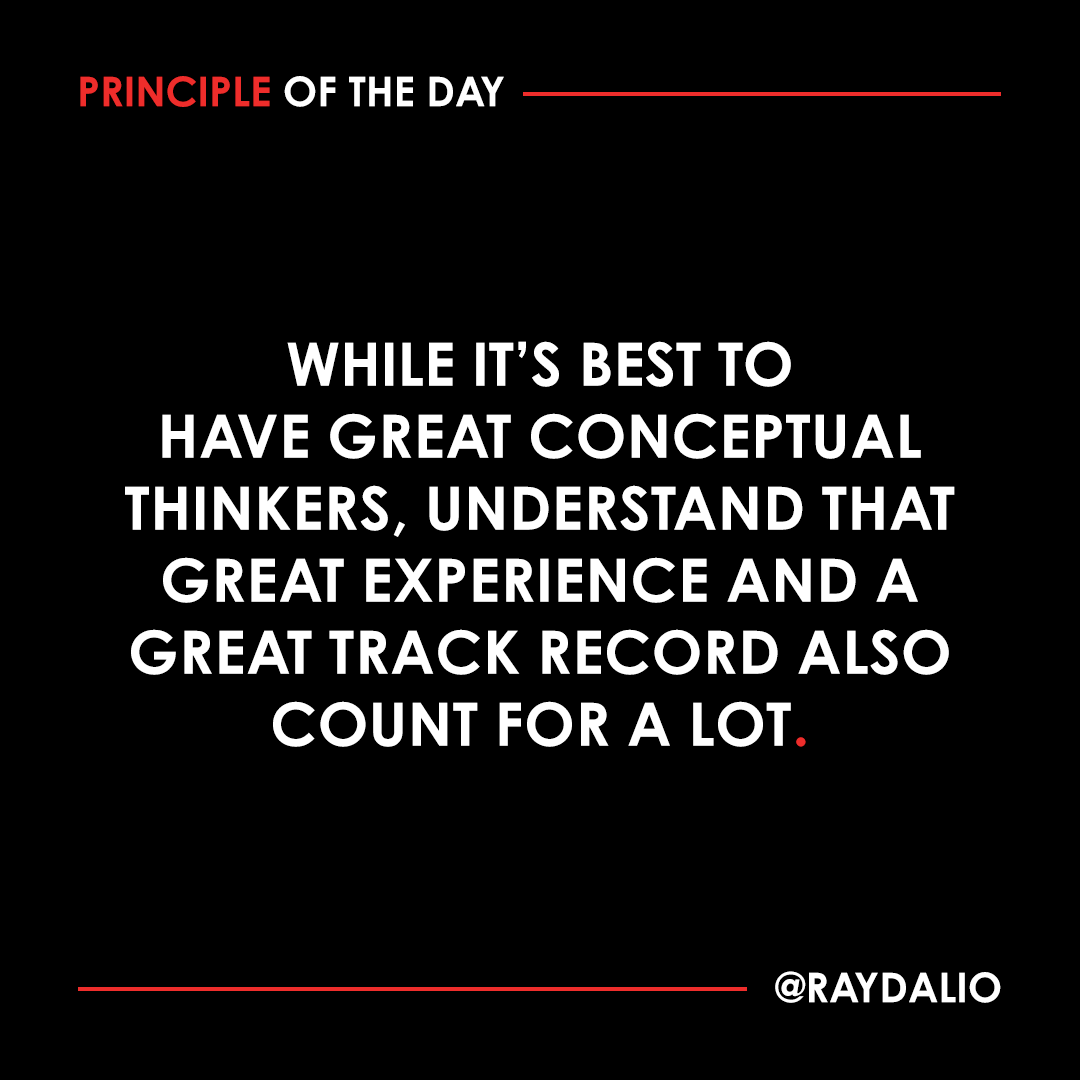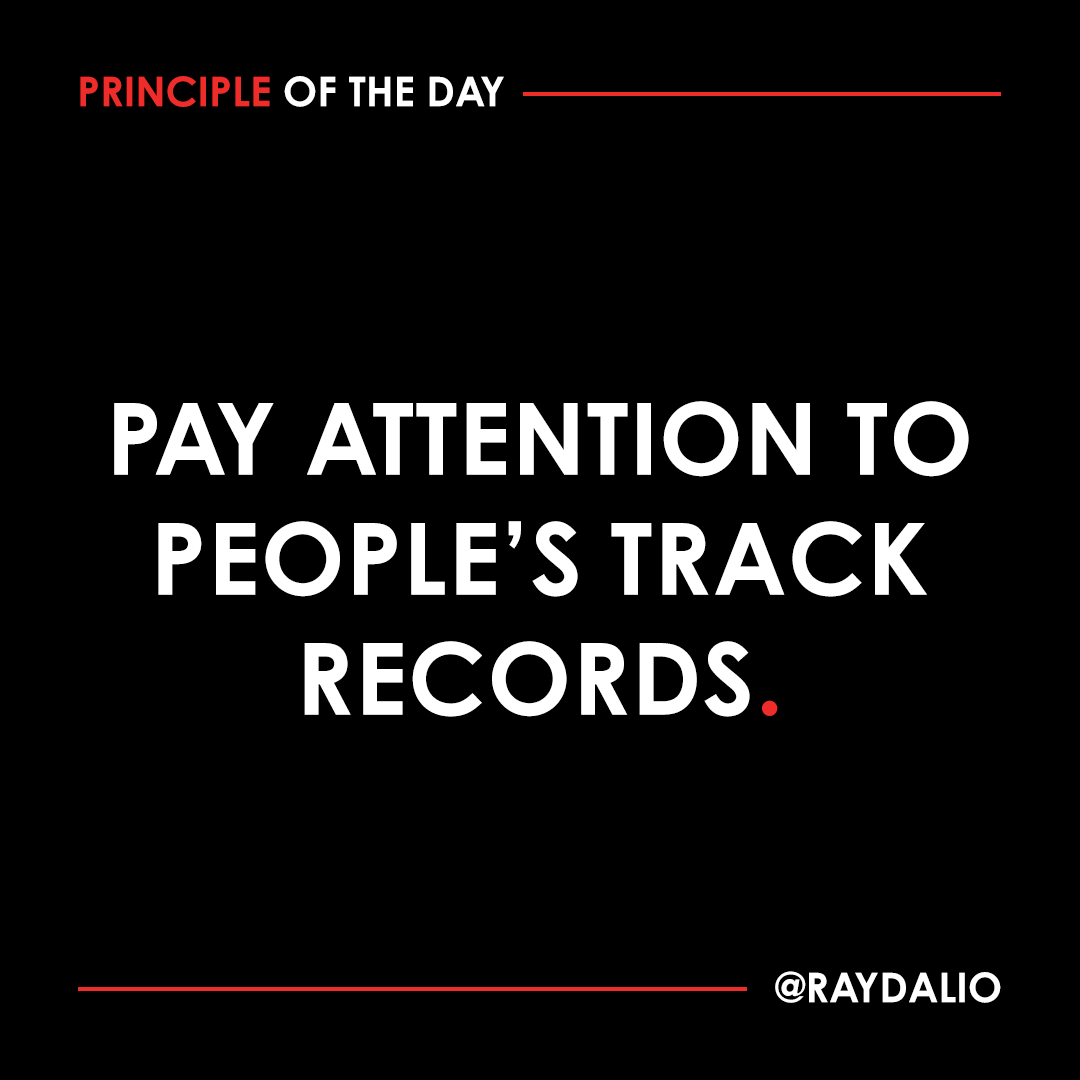The evolutionary process is about discovering people's likes and dislikes as well as their strengths and weaknesses; it occurs when people are put into jobs they are likely to succeed at, but in which they have to stretch themselves. #principleoftheday (1/8) 

Each person's career will evolve based on what we all learn about what the person is like. They should be given enough freedom to learn and think for themselves while being coached so they are prevented from making unacceptable mistakes. (2/8)
The feedback they receive should help them reflect on whether their problems are the kind that can be resolved by additional learning or stem from natural abilities that are unlikely to change. (3/8)
Typically it takes from six to twelve months to get to know a new employee in a by-and-large sort of way, and about eighteen months for them to internalize and adapt to the culture. During this time there should be periodic mini-reviews and several major ones. (4/8)
Following each of these assessments, new assignments should be made that are tailored to their likes and dislikes and strengths and weaknesses. (5/8)
This is an iterative process, in which the accumulated experiences of training, testing, and adjusting direct the person to ever more suitable roles and responsibilities. (6/8)
At Bridgewater, it is typically both a challenging and rewarding process that benefits the individual by providing better self-understanding and greater familiarity with various jobs. (7/8)
When it results in a parting of ways, it's usually because people find they cannot be excellent and happy in any job at the firm. (8/8)
• • •
Missing some Tweet in this thread? You can try to
force a refresh

 Read on Twitter
Read on Twitter








